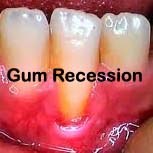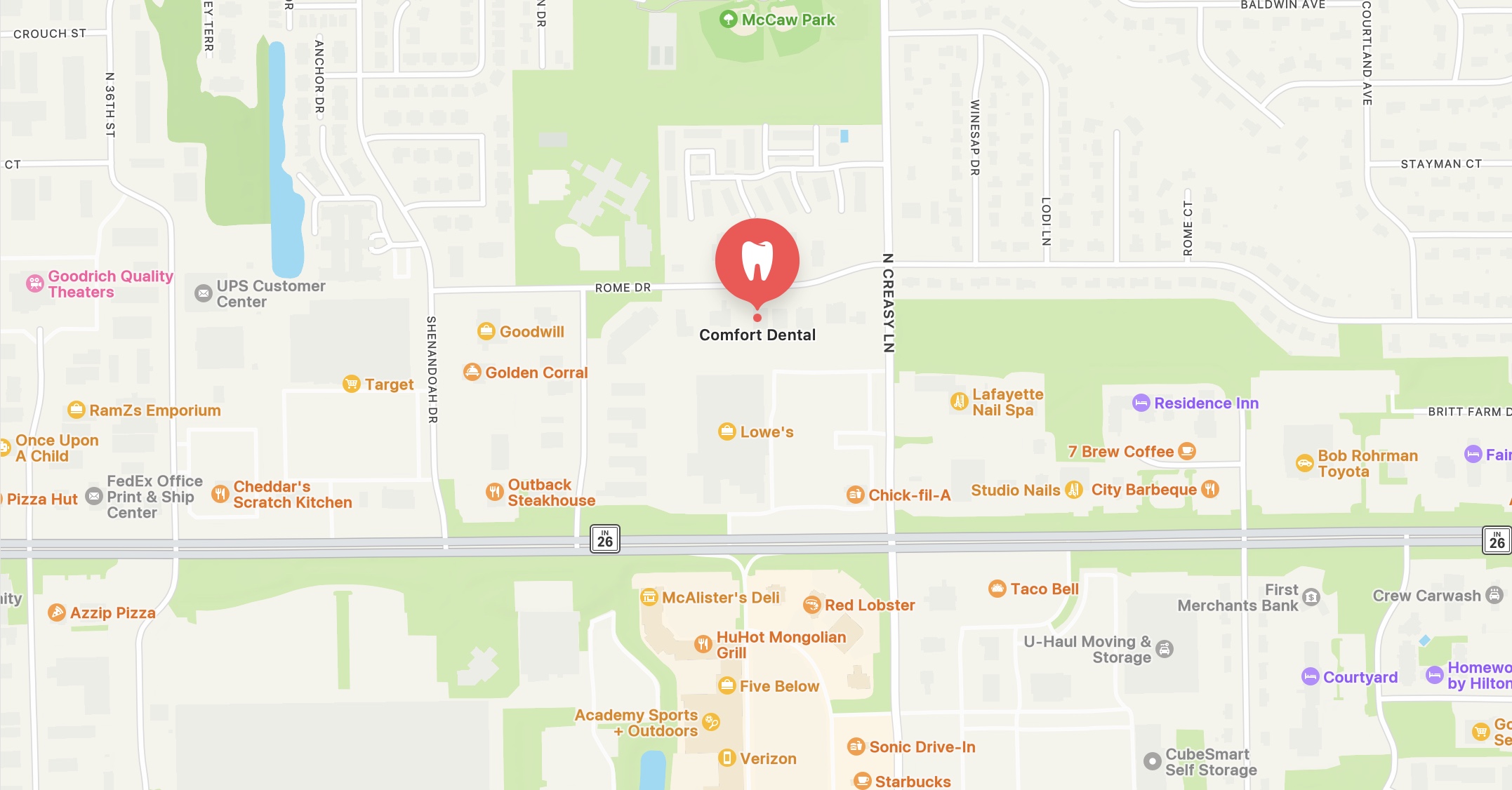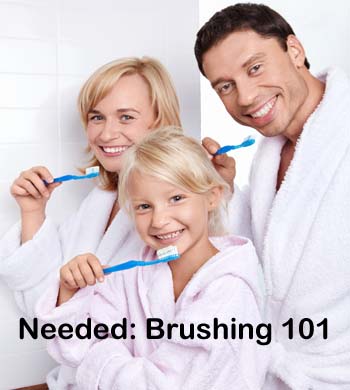 MANY OF US LEARN TO BRUSH OUR TEETH WHEN WE ARE YOUNG. Those brushing techniques may not be serving us well in adulthood.
MANY OF US LEARN TO BRUSH OUR TEETH WHEN WE ARE YOUNG. Those brushing techniques may not be serving us well in adulthood.
Even with years of experience, taking a moment to review common problems and proven techniques can make the best of your toothbrush-time.
Comfort Dental has identified 5 problems – and solutions – to reduce brushing mistakes and improve dental health. After all, we might as well make the most of those minutes holding your toothbrush everyday.
1. Even with brushing, gums can get irritated & bleed – called gingivitis
More frequent brushing doesn’t always equal healthier gums – gums should not bleed. Many patients tell me, “But I’m brushing three time a day, how can I have gingivitis?”
One factor to consider is – technique. Reviewing this video from Colgate can help your routine.
Gum recession is a process in which the normal tissue margin surrounding the teeth wears away exposing more of the tooth. This can lead to tooth sensitivity and can be a sign of more serious issues.
Aggressive brushing is one common cause of gum recession, others include gum disease and grinding or clinching your teeth.
If you are noticing areas of your gums receding, make sure it’s a topic of your next dental visit. In addition, be aware of your brushing technique to make sure you are not brushing too aggressively.
.
3. Abrasion or wearing of the teeth can take place
Remember: Brushing lightly benefits your teeth and gums. Here are 3 tips:
- Always use a toothbrush with soft or extra-soft bristles – If you think you might brush too hard, hold your toothbrush the same way you hold a pen. This encourages a lighter stroke.
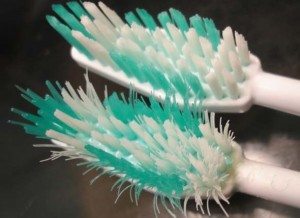 Brush no more than three times a day – Brushing after lunch will give you a good mid-day cleaning, yet brushing too often can cause damage.
Brush no more than three times a day – Brushing after lunch will give you a good mid-day cleaning, yet brushing too often can cause damage.- Change your toothbrush regularly – Throw away your old toothbrush after three months or when the bristles start to flare, whichever comes first. Make note: If your bristles flare much sooner than every three months, you may be brushing too hard
4. Gum infections or gum disease
Gum infections start with plaque. Plaque sticks to teeth like jelly sticks to a spoon. Rinsing alone cannot remove it – correct brushing is required.
If plaque is left on the teeth it will harden into calculus (tartar), & guess what…brushing at home can’t remove calculus. A professional cleaning at the dentist’s office is required to remove harmful bacteria.
Gum infections are far too common – and can get a strong hold with little pain. Learn more about gum disease.
5. Tooth decay
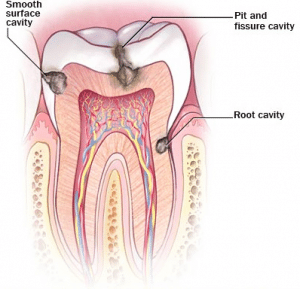 If food and plaque are not removed properly the hard surface (enamel) are also at risk and can begin to decay.
If food and plaque are not removed properly the hard surface (enamel) are also at risk and can begin to decay.
Once started, this decay process then progresses to the deeper layers of your teeth if not removed and filled by a dentist.
Proper brushing techniques can reduce the likelihood of decay developing on teeth. Regular visits to your dentist for exams and professional cleanings are also a great way to reduce the likilhood to dental decay.
3 Additional Recommendations for a Healthy Smile:
- Brush twice a day – One of those times should be before bed. When you sleep, your mouth gets drier – making it easier for acids from bacteria to attack your teeth. Also brush in the morning, either before or after breakfast is recommended. This will get rid of the plaque that built up overnight.
- Brush for at least two minutes –Set a timer if you have to, but don’t skip on brushing time. Two minutes is the minimum time you need to clean all of your teeth. Try brushing for the length of a song. This can be a good reminder to brush each tooth thoroughly.
- Have a standard routine for brushing – Try to brush your teeth in the same order each day. This routine can help you cover every area of your mouth.
Taking time to brush your teeth well is a great investment in your overall health. From helping to ensure you can eat foods properly, to your overall self-esteem, to healthy gums – proper brushing techniques are important.
Comfort Dental is dedicated to helping patients achieve healthy smiles for a lifetime. If you have questions about daily preventive care – or any dental related topic, please feel free to Ask the Dentists. We hope to see you soon!

